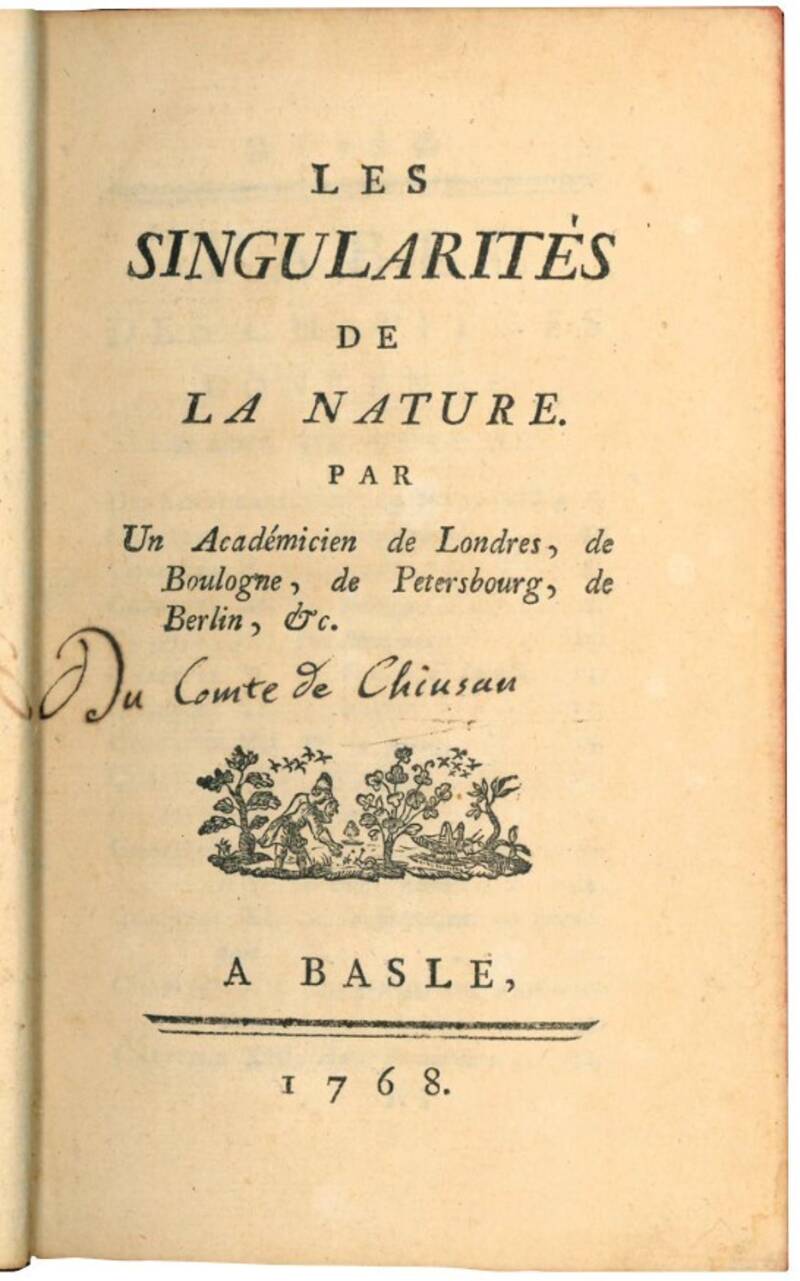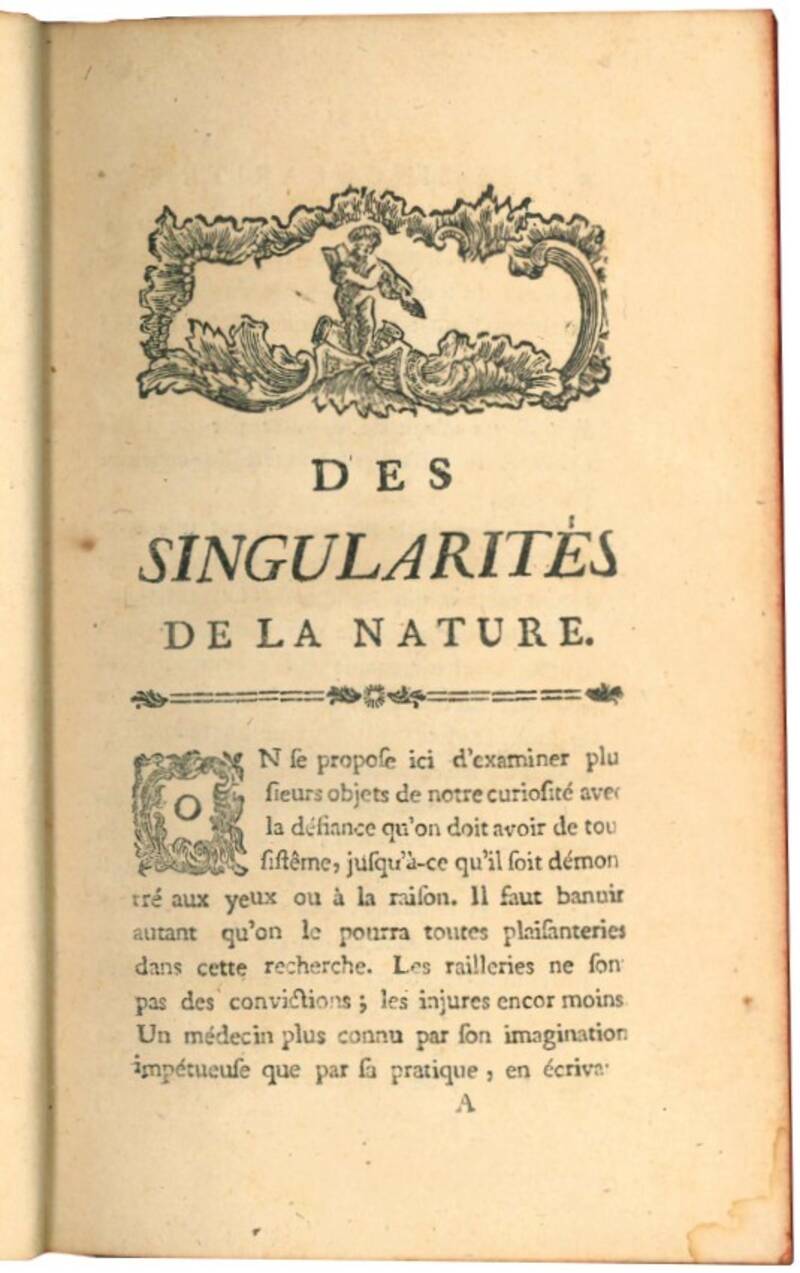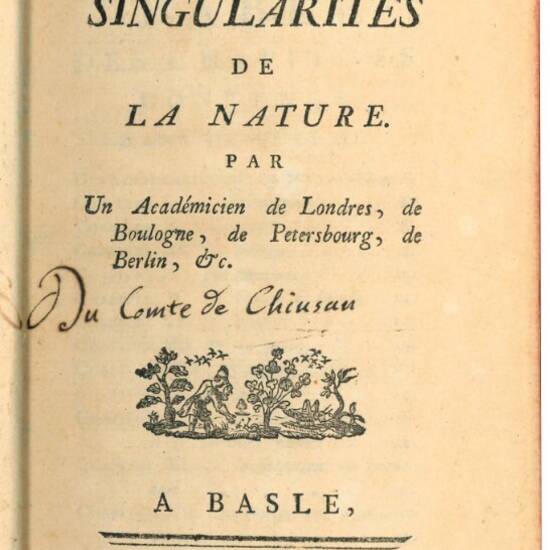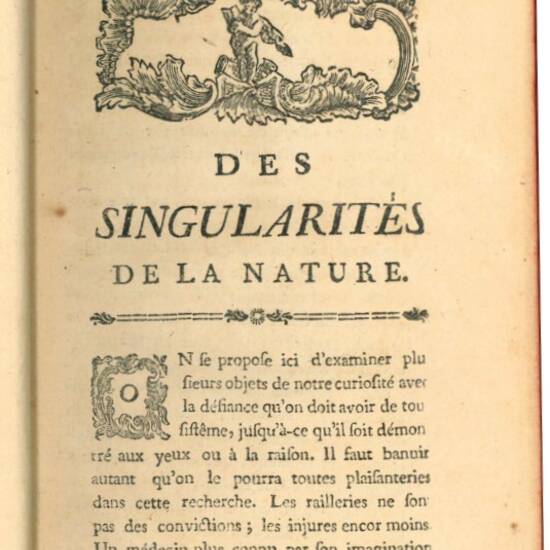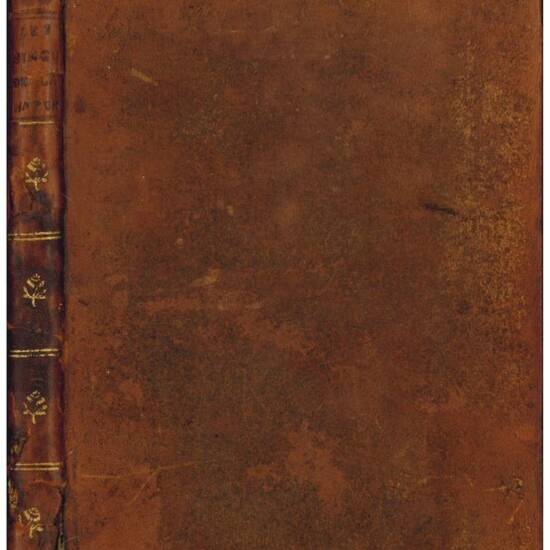8vo (189x114 mm.). VII, [I], 131, [1] pp. Collation: )(4 A-H8 I2 (last p. blank). With the woodcut vignette on title page and many woodcut initials, head- and tail-pieces. On the title page the manuscript ownership entry ‘Du Comte de Chiusan' [the count of Chiusano, a municipality in the Province of Asti, Piedmont (IT)]. Some occasional staining, slightly uniformly browned. Contemporary calf, gilt ornaments on spine (slightly worn and stained, bottom of spine and upper corner of back panel missing, joins broken, trace of lettering piece), red edges.
First edition described by Bengesco, vol. II, p. 228, identified for the woodcut vignette on the title page (a man bent over observing snails). In Les singularitès de la nature Voltaire describes numerous natural phenomena: “Plus on a decouvert de verités dans le siècle de Newton, plus on doit bannir les erreurs qui souilleraient ces verités”. Voltaire addresses the issue of science and especially the scientific method; the first principle he refers to is doubt, it is necessary to guard against errors that could bring discredit on the truths of science. Among the many chapters we can mention: Des pierres figurées; Du corail; Des polipes; De la formation des montagnes; Des pétrification d'animaux; De la grotte des Fées; De Bernard Palissi; Des monstres and many other peculiar phenomena. The last ones include the chapter De la population, of demographic interest. Also visible in the treatise are the themes dear to Voltaire such as the defense of tolerance, the fierce criticism against servility and fanaticism, and the contempt for those who renounce critical reasoning out of interest or mental laziness. Many scholars identify this work as one of the most mature of the great French philosopher's approach to the world of science and popular beliefs or legends, guided by the basic principles of the Enlightenment and reason.
François-Marie Arouet de Voltaire was one of the most influential french enlightenment writer, philosopher and historian of the 18° century. Famous for his wit and his criticism of Christianity and of slavery, Voltaire was an advocate of freedom of speech, of religion, and separation of church and state. He was a versatile and prolific writer, producing works in almost every literary form, including plays, poems, novels, essays, histories, but also scientific expositions (more than 20,000 letters and 2,000 books and pamphlets).
Cf. Bengesco vol. 2, nr. 1766.
[12938]

